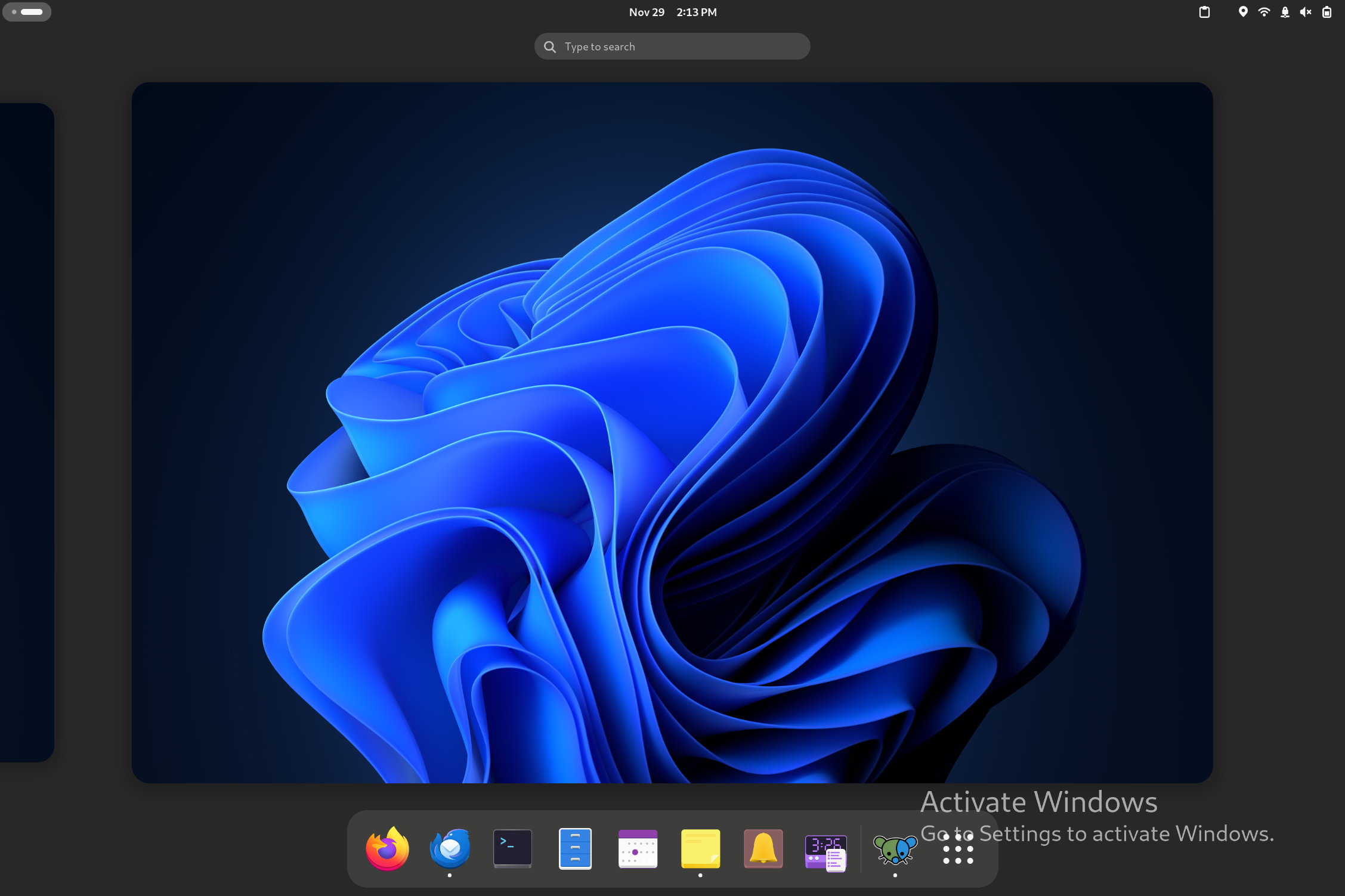- I'd be fine with any. Trying Fedora, or maybe Debian. But I'd rather set up networking at the qemu level so the vm only has access to what I want it to.
- I don't know how it would work, but I can create a new device id and make a new wireguard conf file. I don't know why this wouldn't work with any other conf/interface on my host.
- I want this to be physical router agnostic, as the host is a laptop. Only the vpn and host should be exposed to the VM.
Adonnen
Flare isn't feature complete but you can run it in the background for all notifications.
I'd imagine the drm would ruin that plan. No HD streaming.
I think a server is for streaming the audio to different devices. They don't want to stream from phone to the player (or the other way around). They just want to be able to browse library and control playback from their phone.
I much prefer Windows to MacOS. The fact it is missing decent tiling is a nonstarter. It's too inflexible for my workflow.
And sure, Windows can be maddeningly inconsistent, but what really destroys the experience is the constant ensh*ttification. I know a lot of people here hate everything about Windows, but for me, it only sucks because Microsoft designs it to suck.
Not only are there ads and (some) first party lockin, I cannot trust they will continue offering updates, paywall feaures, restrict more functionality, or insert stuff like AI to mess up my workflow.
I used to think reliability was just about stability and bugginess, but now I think it is about trust as well.



Was looking for this comment. Donate your plasma to KDE!